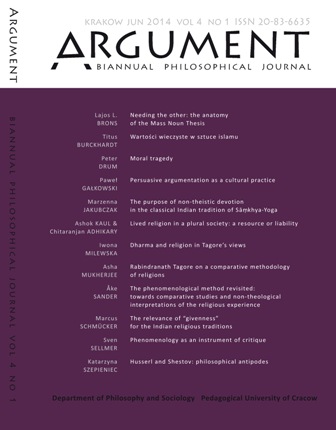Needing the Other: the Anatomy of the Mass Noun Thesis
Needing the Other: the Anatomy of the Mass Noun Thesis
Author(s): Lajos BronsSubject(s): Applied Linguistics, Sociolinguistics, Sociology of Culture, Social Norms / Social Control
Published by: Wydawnictwo Uniwersytetu Komisji Edukacji Narodowej w Krakowie
Keywords: othering; interpretation; philosophy of linguistics; philosophy of anthropology; folk-ontology; numeral classifiers; mass nouns
Summary/Abstract: Othering is the construction and identification of the self or in-group and the other or outgroup in mutual, unequal opposition by attributing relative inferiority and/or radical alienness to the other/out-group. Othering can be “crude” or “sophisticated”, the defining difference being that in the latter case othering depends on the interpretation of the other/out-group in terms that are applicable only to the self/in-group but that are unconsciously assumed to be universal. The Mass Noun Thesis, the idea that all nouns in certain languages are grammatically and folk-ontologically similar to mass nouns in English, is an example of sophisticated othering. According to this Thesis, (a) count nouns refer to discrete objects and mass nouns to stuff; (b) the other’s language has only mass nouns and thus no count nouns; and therefore, (c) the other’s folk-ontology is an ontology of mass stuffs only. There is much evidence, however, that folk-ontology is independent from language. This paper argues that the Mass Noun Thesis is a case of sophisticated othering rooted in a conflation of grammatical and ontological conceptions of mass and count nouns that is applicable to the language of the interpreter/self but not to the languages of the relevant others, and that othering in this case is driven by a need to create some radically alien other to support a scientific or philosophical theory.
Journal: ARGUMENT: Biannual Philosophical Journal
- Issue Year: IV/2014
- Issue No: 1
- Page Range: 103-122
- Page Count: 20
- Language: English

